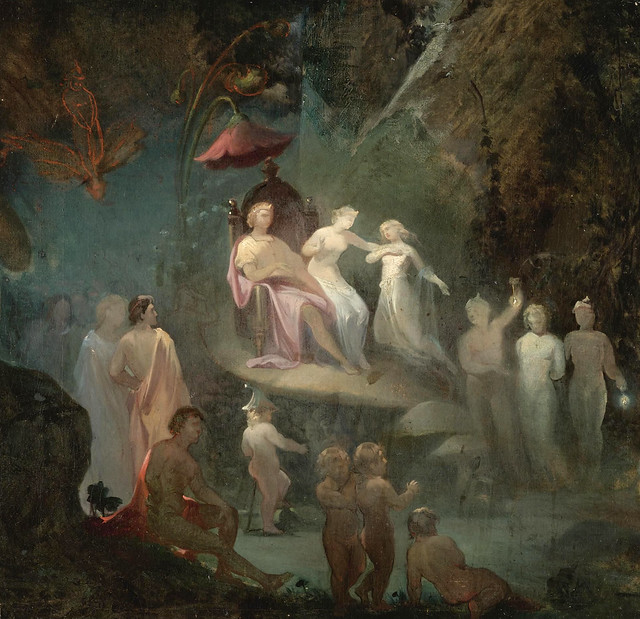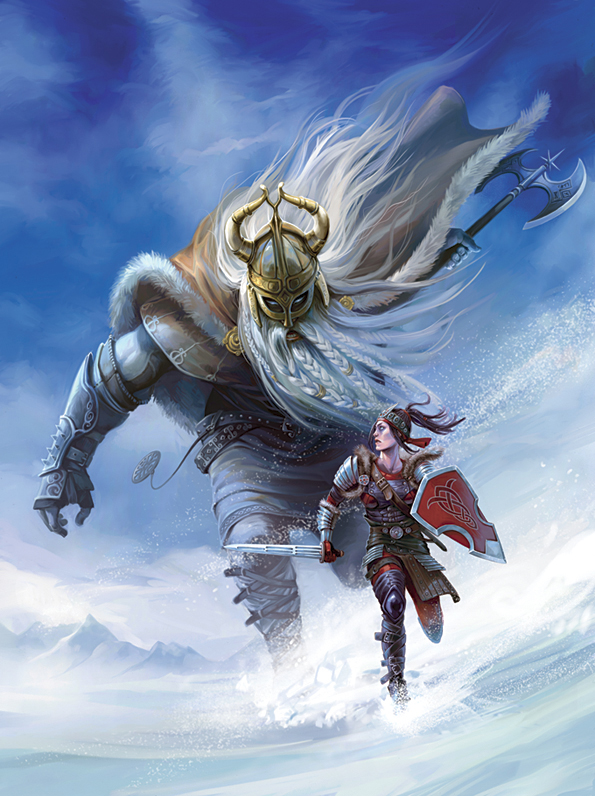
Cold, darkness, violence and betrayal are the hallmarks of the Fimbulwinter, the last great winter that heralds the end of the world. The end will approach gradually: the actual length of this last terrible season may be one year or it may be one hundred, depending on what happens during that time. Springs and summers will come and go for a while, but each will be less bright than the last. Although Ragnarok looms on the horizon, the PCs will have plenty of time to engage in low-level adventures and pursue their own personal goals. Nor is the apocalypse destined to play out in a particular manner, for the PCs may well have a hand in it before the dark season is over.
Fighters of Scandinavia are generally Vikings, those who sailed on longships to distant lands either as explorers, merchants or pirates. Other fighters might be housecarls who serve in a particular house, or mercenaries, wandering brigands, etc.
Thieves are much the same as they ever are, professional lawbreakers, footpads, pickpockets and con artists, whose trades are ubiquitous in time and place.
Clerics will mostly be priests of the Norse pantheon, picking a specific god to whom they pay homage. The following gods are common, although others are also allowed.
Lawful: The Aesir - Odin, Thor, Tyr, Bragi.
Neutral: The Vanir - Njord, Freyr, Freyja, Heimdall.
Chaotic: Loki, Hel.
For foreigners, gods of other realms are also viable, e.g. Jesus, Allah, Lugh, Satan.
Wizards are those who shun the magic of the gods and seek power for men alone. Many strike bargains with powerful supernatural beings in order to gain greater power. Common patrons who offer bargains include Utgarda-Loki, the giant illusionist; Angrboda, mother of monsters; the Norns, who weave the threads of destiny; and the King of Alfheim, lord of the timeless elves.
That which is called Álfheimr is one, where dwell the peoples called Light-Elves; but the Dark-Elves dwell down in the earth, and they are unlike in appearance, but by far more unlike in nature.
Elves are long-lived, fair and cold-hearted. They care little for the struggles of mortal beings, but sometimes deign to venture abroad from their holts in Alfheim, playing for awhile at the games of humanity. Dark Elves dwell deep beneath the earth in Nidavellir; they are like their forest cousins, but with more of cruelty and less of playfulness.
Many a likeness of men they made, the dwarfs in the earth, as Durin said.
Dwarves are also long-lived; they are cruel and capricious, and their hearts are warmed only by greed. In their secret halls beneath the mountains they craft magical artifacts of unparalleled quality. Those who go adventuring are usually outcasts from their home people, and usually have little love for men or gods.
Halflings are an obscure race, possibly descended from the union of men and elves. They live exclusively in Shetland, where they have been driven into the hills and hidden valleys by the arrival of Danish settlers. They generally lack a taste for adventure, but Halfling PCs will be the exceptions.
Other races and classes are available by negotiation. If the rules for it don't seem broken, and you can argue convincingly how it fits into the setting, then you can play it.

The Gods of the Norsemen are somewhat different to the typical D&D depiction of deities; they are somewhat weaker, though still very powerful. The Aesir are not abstract conceptual entities and they are not sustained or created by belief in them. They have discrete physical forms and they are, theoretically at least, vulnerable to physical threats; but they all possess mighty magic, powerful artifacts and superhuman abilities. Nevertheless, one god has died in the past, and it may yet happen again.
Out of the Ice-waves issued venom-drops, waxing until a giant was;
Thence are our kindred come all together,-- so it is they are savage forever.
Thence are our kindred come all together,-- so it is they are savage forever.
Giants, by contrast, are considerably more powerful than the D&D depiction would have them. Rarely have mortals defeated giants in open combat, although trickery has sometimes served them better. The greatest giants are rivals to the gods themselves, and it is feared that when the gods and giants go to war it will signal the end of the world. Not all giants are evil or murderous, however; some, like Utgarda-Loki, simply keep to themselves, and in at least one case a giantess had a child by a human lover.
Nine worlds I knew, the nine in the tree, with mighty roots beneath the mold.
The Nine Worlds, or Nine Realms, are not separate planes of existence, as in some conceptions of Norse mythology. Rather, they are for the most part separate terrestrial regions, although some are high in the sky or deep beneath the earth. The Nine Realms are as follows: Midgard, where men dwell; Asgard, home of the gods; Jotunheim, or Giantland; Alfheim, the secret realms of the elves; Nidavellir, subterranean home of the dark elves; Muspellheim, land of fire; Niflheim, land of ice; Hel, land of the dead; and Vanaheim, where once the Vanir dwelled.







It sounds very much like a setting I would enjoy playing in.
ReplyDeleteWell hopefully you can - the main campaign will be for my home group, but I'm planning to run pickup sessions of Google+ as well.
Delete